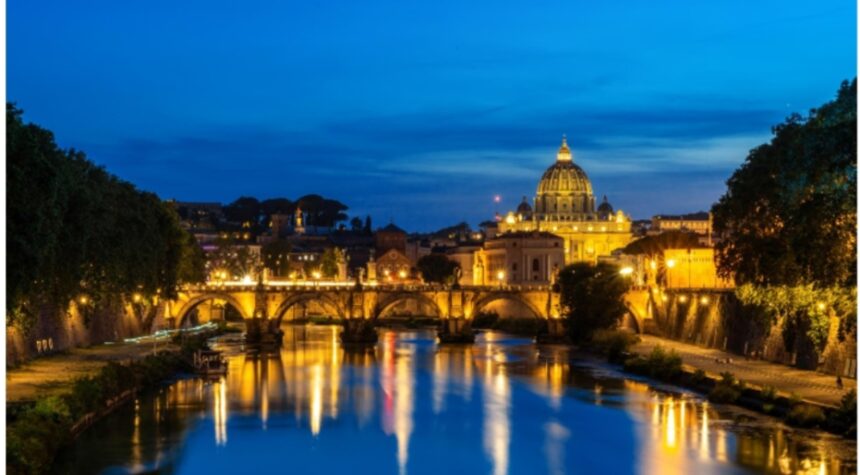Planning a visit to Rome in 2024 is quite exciting, more so because of the declaration of the Jubilee Year 2025 by Pope Francis. Whether one is drawn to Rome due to its rich history, stunning architecture, or spiritual illumination through Jubilee as Pope Francis proclaims jubilee year 2025, this guide shall walk one through traveling from the UK to Rome and better equip one for the visit.
Travel Requirements
Passports
UK nationals will need a valid passport to travel to Rome. Your passport must be valid for at least six months beyond the date you expect to leave Italy.
Visas
In the event that you are a citizen of the United Kingdom, you will not need a visa to enter and reside in Italy or in any of the countries within the Schengen Area for up to 90 days. Note that one cannot have spent more than 90 days, accumulatively, within the Schengen Area in any period of 180 days.
ETIAS
From 2024 onwards, you will need to acquire an ETIAS (European Travel Information and Authorization System) before entering any of the Schengen Area countries. Needless to say, this applies to Italy too. Fortunately, it is relatively easy and straightforward to get one, since basically everything can be done online. ETIAS weeks in advance of your trip should be applied for.
Flights and Transportation
Flights
There are loads of direct flights from major UK airports—London Heathrow, Gatwick, and Manchester—directly into Rome’s Fiumicino Airport, also known as Leonardo da Vinci Airport. These will take about 2-3 hours, so it is a relatively painless journey. Book in advance for the best deals.
Getting around Rome
Once in Rome, the city transport is very developed, and one gets around easily with buses, trams, metro, or even by taxi. You may also want to consider purchasing a Roma Pass that allows you unlimited public transport within Rome and discounted entry to most attractions.
Accommodation
You will definitely find all kinds of accommodation available for you in Rome, from luxury hotels to budget hostels. Some of the more popular areas to stay include:
Centro Storico
Perfect for visitors coming for the first time, this part of town is very central and puts you near such principal sights as the Pantheon, Trevi Fountain, and Piazza Navona.
Trastevere
Recommended to all who want to live the local way; due to its narrow and picturesque streets, Trastevere becomes the most lively area of the city at night.
Vatican City Area
In case you’re coming for Jubilee 2025 or are simply interested in religious places, this could turn out to be the best area to stay in.
Top Attractions and Things to Do
Indeed, Rome is a land filled with historical and cultural Places of Interest. The main Places of Interest that one should visit are as follows:
The Colosseum
The most striking icons of ancient Rome, not missing out on which no visitor to Rome should. You will probably want to use a guide to help you through all the history of the place.
Vatican Museums and St. Peter’s Basilica
These are a ‘must’ when in the city during a Jubilee year. In truth, the art collections and St. Peter’s Basilica are inspiring on their own merit.
The Roman Forum and Palatine Hill
Stroll through ancient Rome’s ruins and take in a commanding view of the city.
The Pantheon
Absolute wonder of ancient engineering, the Pantheon stands as one of the most well-preserved monuments of ancient Rome.
Trevi Fountain
Finally, do not forget to throw a coin into Trevi Fountain. Legend has it that this will ensure your return to Rome.
How to travel: All you need to know
Weather
Rome has a Mediterranean climate, with long, very hot summers and mild winters. If you are traveling in 2024, spring is the ideal month for easy sightseeing.
Language
Italian is an official language; however, you will easily get English from locals working in places frequented by visitors. Anyway, learning some basic words of Italian may further enhance your experience.
Currency and Payments
The currency of Italy is the Euro. Most places will accept credit/debit cards, but it never hurts to have cash.
Safety and Health
Make sure to have health insurance that covers you against medical emergencies. Rome is safe, but as in most large cities, be wary of your pockets in large crowds.
Cultural Etiquette
The Italians respond well to politeness, so it really helps to have a nice “Buongiorno” when you meet people in the morning or to say “Grazie” when they do something for you. Also, be careful about what to wear; with so many churches all over the place, it is respectful to at least dress in a somewhat modest manner.
What all Rome has in store for one makes a visit worth its salt, be it historical sites, lively cultural scenes, and the preparation for Jubilee Year 2025. A properly planned and adventurous attitude will ensure that your time spent in the Eternal City is truly filled with unforgettable moments.






